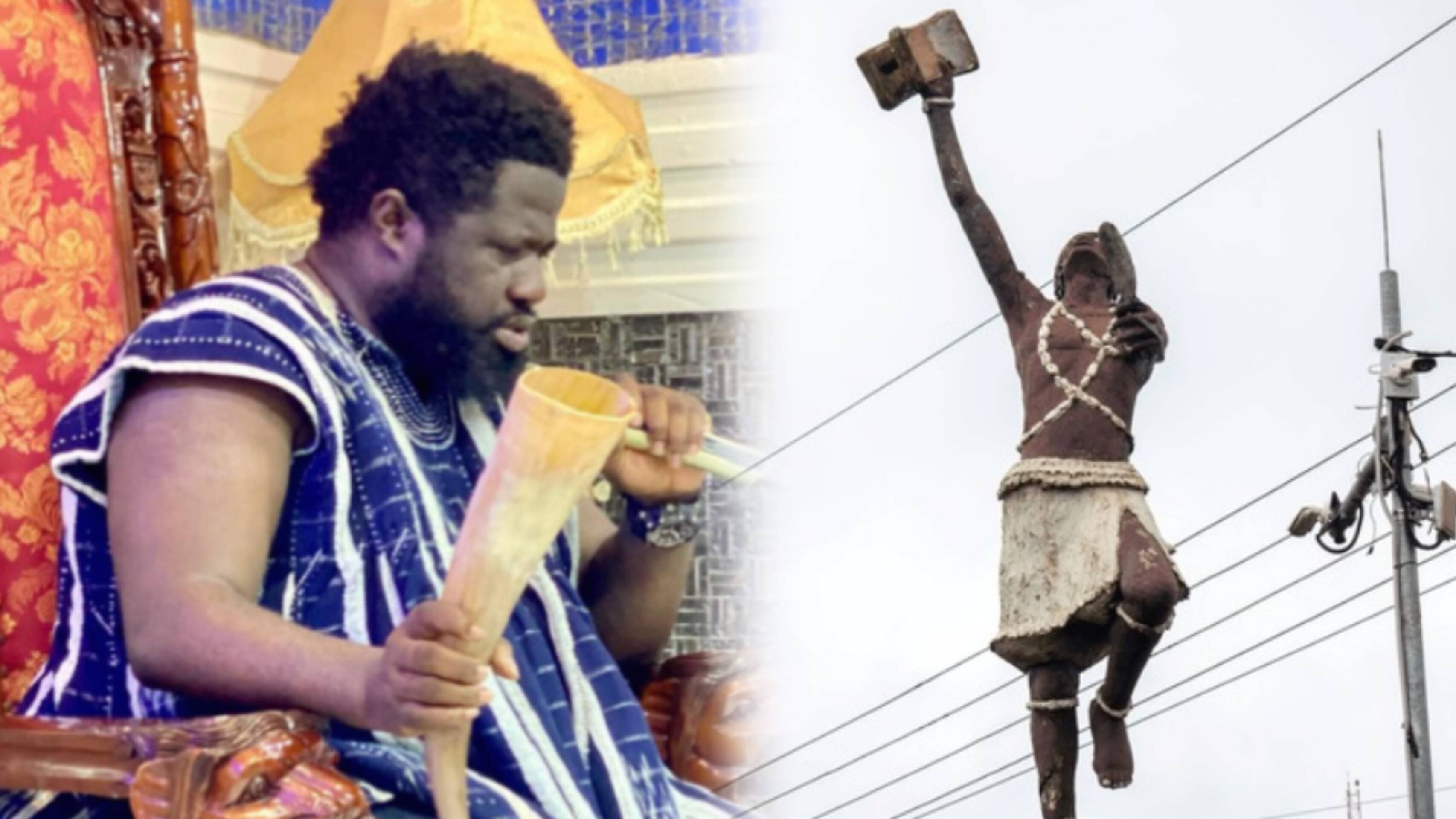Prophet Azuka has sparked public outrage once again with his recent claims, asserting that he possesses greater power than the esteemed Ashanti traditional priest, Okomfo Anokye. In a bold and provocative statement during an exclusive interview with Poleeno Multimedia, Prophet Azuka declared his intention to perform feats that surpass those attributed to this legendary figure in Ghanaian history.
After a period of relative silence following his public dispute with popular TikToker Kofi Pagez, Prophet Azuka has re-emerged in the spotlight with these new assertions of supernatural ability. Known for his controversial statements and public disagreements, the self-proclaimed man of God is well-acquainted with stirring debate, and his latest remarks are likely to intensify discussions surrounding his persona.
During the interview, Prophet Azuka confidently proclaimed, “I will do more powerful things than Okomfo Anokye, and the foolish one would not understand my statement.†He emphasized that only those who are “sensible†would truly recognize the validity of his words, while those who doubt him would struggle to comprehend the significance of his forthcoming actions.
Okomfo Anokye is a legendary figure in Ashanti history, celebrated for his mystical powers and his pivotal role in establishing the Ashanti Kingdom. His legendary feats, including the planting of the famed Okomfo Anokye Sword in Kumasi, are deeply woven into Ghanaian cultural heritage. This makes Prophet Azuka’s comparisons not only provocative but also highly contentious.
Critics argue that such claims can undermine the rich history and cultural significance associated with Okomfo Anokye. By positioning himself in direct competition with a figure so revered in Ghana, Prophet Azuka risks alienating many who hold traditional beliefs close to their hearts. His approach seems to disregard the deep respect and reverence that the Ashanti people have for their cultural icons.
In the wake of his statements, many have taken to social media to express their outrage and skepticism. Supporters of Okomfo Anokye have defended the legacy of the traditional priest, emphasizing the importance of honoring historical figures rather than diminishing their contributions. Others question the intentions behind Prophet Azuka's bold claims, wondering if they are more about self-promotion than genuine belief in his abilities.
Prophet Azuka’s history of controversial statements and public spats has certainly set the stage for continued debate. His latest claims are likely to draw in both supporters and detractors, further amplifying discussions about faith, power, and cultural identity in Ghana. The juxtaposition of his assertions against the backdrop of a respected historical figure raises important questions about the nature of belief and the weight of cultural heritage.
As Prophet Azuka continues to assert his perceived superiority, it will be interesting to see how this situation unfolds. Will he be able to back up his claims with tangible results, or will his statements remain just that—provocative words that stir controversy without substance? The answers may lie in the reactions of the public and how they choose to engage with his narrative.
In a society where traditional beliefs and modern expressions of faith often collide, Prophet Azuka’s declarations serve as a reminder of the complexities involved in discussions of power and spirituality. Whether one views him as a visionary or merely a provocateur, his statements undeniably provoke thought and discussion.
In conclusion, the ongoing conversation surrounding Prophet Azuka and his claims against Okomfo Anokye underscores the significance of cultural history and the power of belief in shaping public opinion. As both figures are analyzed and compared, the dialogue about tradition, modernity, and the nature of faith will continue to evolve.




No comments yet
Be the first to share your thoughts!